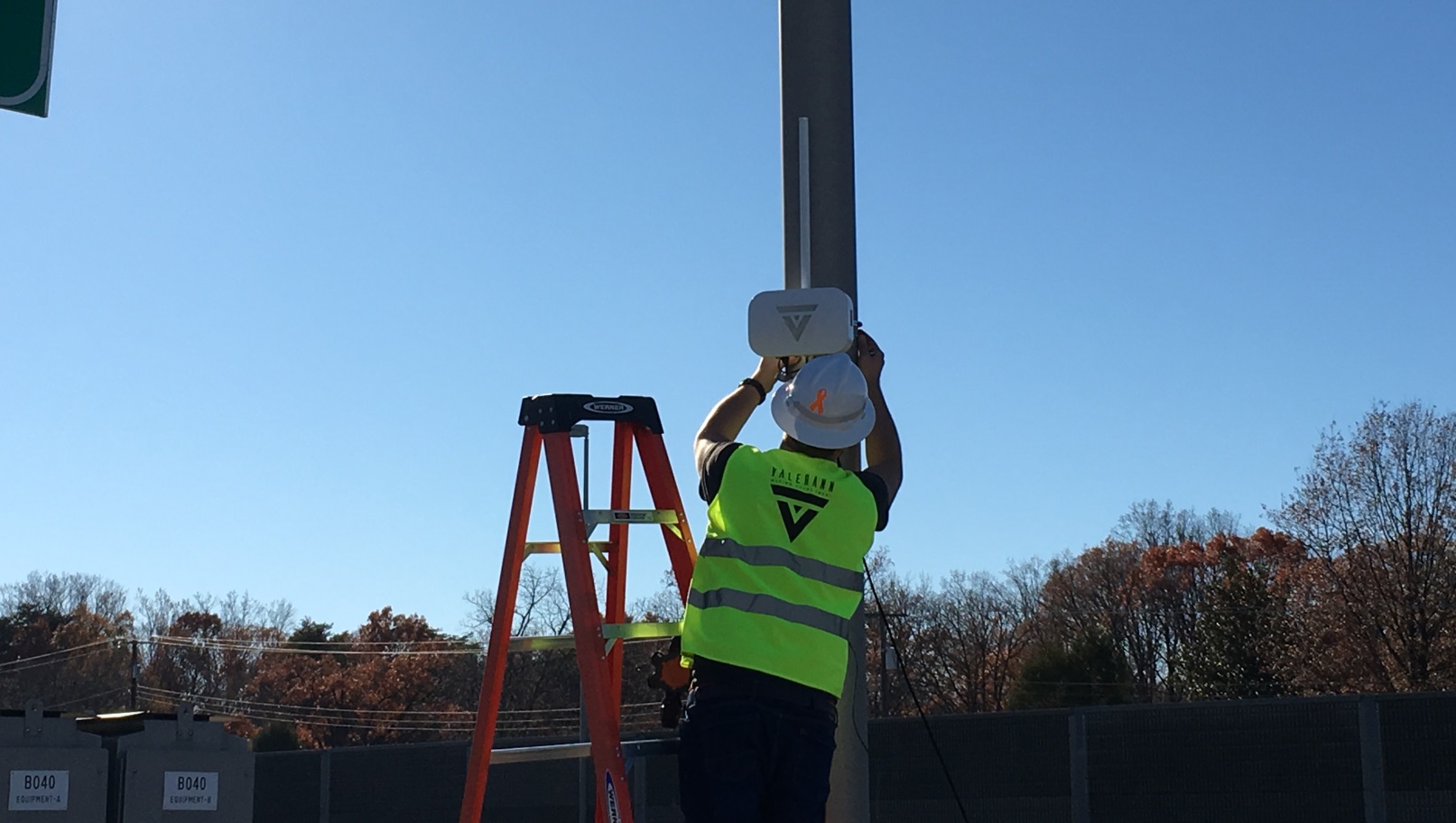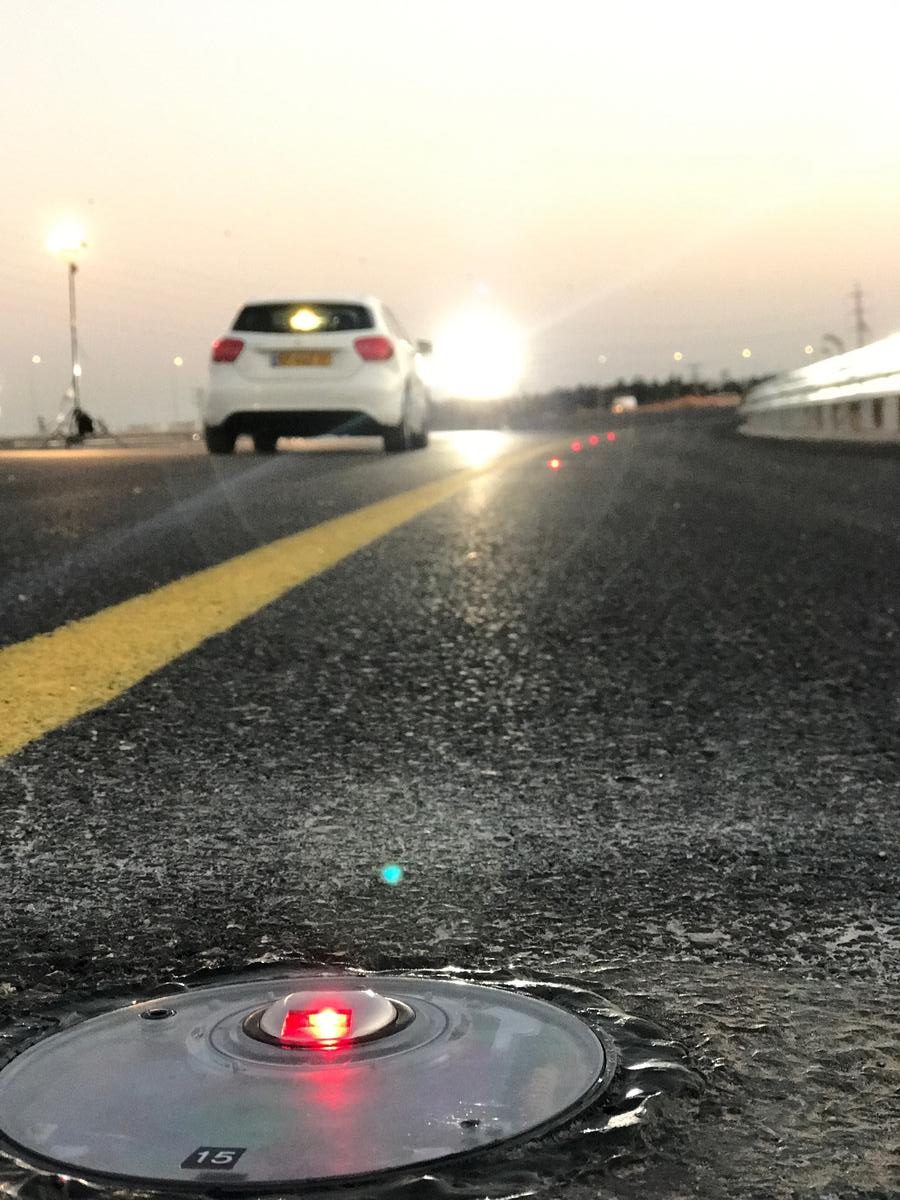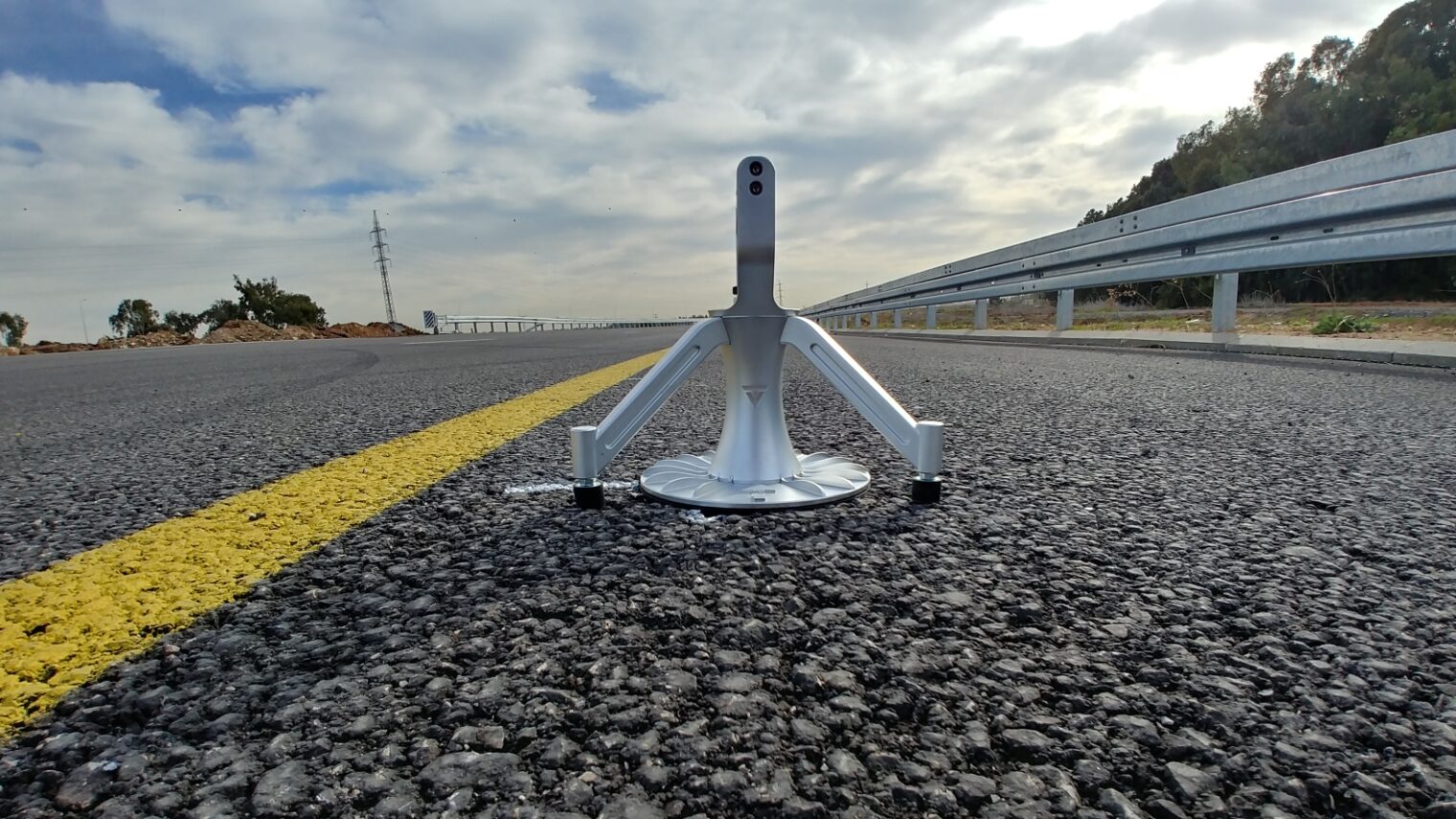Just as skin is the body’s largest organ, roads are the earth’s largest infrastructure, covering a total of 30 million kilometers (8 million miles) worldwide.
And yet only 4 percent of the world’s roads are outfitted with sensors to convey critical data such as traffic patterns, hazardous conditions, driver behavior and accidents. That’s because it costs about $3 million per mile today to make roads “smart.”
“When it comes to data, roads are the final frontier. The main problem is the need for very expensive communication cables, cameras, patrols and control centers,” says Gabriel Jacobson, CEO of Valerann an Israeli and British company whose cloud-based road digitization system aims to change all that by slashing current costs by as much as 90%.
Valerann’s four Israeli cofounders (Shahar Bahiri, Jacobson, Michael Dan Vardi and Daniel Yakovich) won the 2017 Intelligent Infrastructure Challenge of Highways UK and were chosen to participate in the exclusive Intelligent Mobility program at Telefonica’s London-based startup accelerator Wayra.
Valerann now has several pilot proof-of-concept projects on the go in the UK and the USA.

Smart road studs
Part of the reason for Valerann’s focus on the UK is that country’s emphasis on and support of innovation for infrastructure. This includes an abundant infrastructure innovation budget.
But the main reason is that the Israeli technology is based on replacing existing reflective road studs — embedded in every 10 to 15 meters of road in the UK to highlight lanes, bumps and crossings — with wireless plug-and-play “smart studs” containing sensors and antennas that collect and transmit raw data to pole-mounted control units that send the data to the cloud for analytics.

At the end of this real-time process, the road operator receives a full “road map” showing real-time conditions, and the smart studs can send alerts when necessary. The smart studs’ LED illumination can be altered remotely to change color or to flash, for example to help guide emergency rescue teams to the scene of an accident or warn other drivers about a stalled vehicle in the road.
Jacobson says road studs are changed anyway every few years, so they can be gradually replaced with Valerann smart studs. Valerann studs will need to be replaced every seven to 10 years, which can coincide with scheduled road resurfacing.

The 16-person company (named after a Nordic mythological steel that doesn’t break) also has significant interest from outside the UK.
After winning a global innovation contest sponsored by a leading global toll road operator, which manages and develops urban toll-road networks in Australia and the United States, Valerann is working towards a proof-of-concept project with a leading road operator in Washington, DC.
Jacobson reports strong interest also from several Japanese road operators as well as the Israeli operators of Highways 6 and 20 (Ayalon). (Update: In April 2018, Valerann installed its technology on a section of the Ayalon Highway in Tel Aviv.)
Valerann’s IoT technology eventually will be able to interact with and support the decision-making systems of autonomous vehicles and connect with navigation apps and drivers of vehicles in Gett, Uber or Lyft networks to provide road alerts.
Jacoboson expects that Valerann’s first full-functioning system will be implemented by the end of 2018.
Currently, he explains, the few roadways in the world that do have traffic monitoring and management systems use a hodgepodge of technologies from various providers and all the data must be aggregated and analyzed by large companies.
“It’s very inefficient and complex for road authorities and for companies that manage toll roads,” he says. “Our system, by contrast, will provide all the important insights operators need to optimize traffic and reduce accidents. We are trying to streamline the entire process.”
For more information, click here













